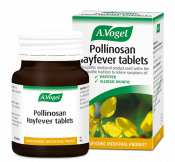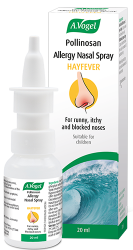Allergic rhinitis and watery eyes
An over-sensitive immune system results in the common problem of allergic rhinitis. Here the immune system deems certain things like pollen and mould spores as a threat and so tries to destroy them in the same way it would a cold or flu. So, why does the condition cause watery eyes?
Well, when these allergens land on the eyes it irritates tissues that are already quite sensitive. In response, and in order to wash out these allergens, the eyes produce excess tears. This, in turn, causes blurry vision as water distorts the way light falls on the surface of the eye.
How to tell if allergic rhinitis is causing watery eyes
From cold weather to colds and flu, there are a variety of causes when it comes to watery eyes which can make it difficult to determine what’s exactly behind the issue. So, to help you out, here are a few things to consider.
Frequency – a cold or flu only occurs a few times a year so, if watery eyes are often a problem for you it may be a sign that allergic rhinitis is the cause.
Season – pollen is the most common cause of allergic rhinitis so, if watery eyes become more problematic in the spring and summer months when plants pollinate, this may indicate that allergic rhinitis is the cause.
Where – dust mites, mould spores and animal dander are some additional examples of things that cause allergic rhinitis. All of these are found indoors so if you feel your symptoms worsening there, allergic rhinitis, once again, may be the reason for this.
What can you do?
Watery eyes are, as any allergic rhinitis sufferer will know, extremely uncomfortable. However, fortunately there are a few things that can be done to ease the problem.
Cut down on the use of contact lenses – this prevents pollen from becoming trapped in the eyes and so reduces watery eyes.
Try not to rub your eyes – this will only exacerbate the problem of watery eyes because it triggers the release of histamine to fight off allergens. This, in turn, can cause issues like swelling and redness which are both painful and uncomfortable.
Use a cold compress – dampen a cloth with cold water and use this to press round the eye area. This may have a soothing effect on your symptoms.
Wear glasses or sunglasses outdoors – if you know pollen is the cause of your allergic rhinitis this may be helpful as it protects your eyes from pollen.
How to avoid allergens
Avoiding allergens can be a difficult task but doing so will prevent your eyes being irritated. How you avoid allergens depends on your trigger.
Animal dander – to ease watery eyes that are the result of animal dander it is helpful to have animal-free zones in your house - perhaps your bedroom could be one of themw. Also, regular cleaning can lessen the effects of animal dander.
Dust mites – when dust mites are problematic it may useful to use dust-proof bedding, to wash your bedding every week and to avoid fabrics that are hard to wash.
Mould spores – there are a number of things you can do to lessen the effects of mould spores in your home when you know they are at the root of your watery eyes. You can regularly open windows to keep up the circulation of air for example, you can address sources of dampness at their root by fixing any leakages and you should use extractor fans when cooking and washing to avoid the formation of damp.
Pollen - if pollen is problematic it’s a good idea to have knowledge of your local pollen count and to stay indoors when counts are high. You can gain access to a comprehensive pollen count for the UK through our website.
Herbal remedies
Moisturising Eye Drops - these contain Euphrasia (also known as Eyebright) which has a long history in the treatment of eye problems. It helps soothe watery and irritated eyes which often come about as a result of allergic rhinitis.
Pollinosan Hayfever Tablets – these are also useful when suffering from allergic rhinitis as they address many of the symptoms associated with the condition such as watery eyes. This is particularly useful because watery eyes are often accompanied by things like congestion and swelling which these tablets target.
Conventional treatments
Eye drops – if allergic rhinitis comes to affect your everyday life it may be time to visit your doctor who can prescribe eye drops. These may have anti-inflammatory, anti-histamine or decongestant properties that are designed to reduce swelling and irritation.





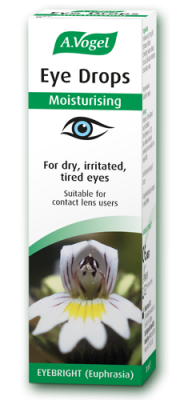
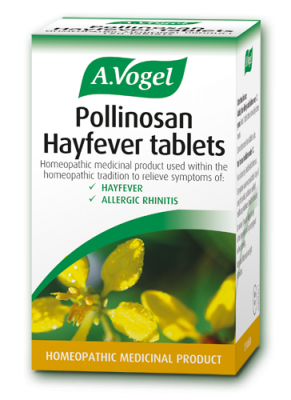
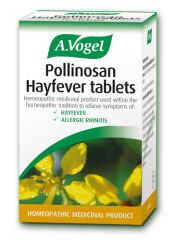 Looking for a solution to curb those hayfever symptoms such as itchy eyes, constant sneezing and congestion, then look no further than A.Vogel’s Pollinosan Hayfever tablets.
Looking for a solution to curb those hayfever symptoms such as itchy eyes, constant sneezing and congestion, then look no further than A.Vogel’s Pollinosan Hayfever tablets.
